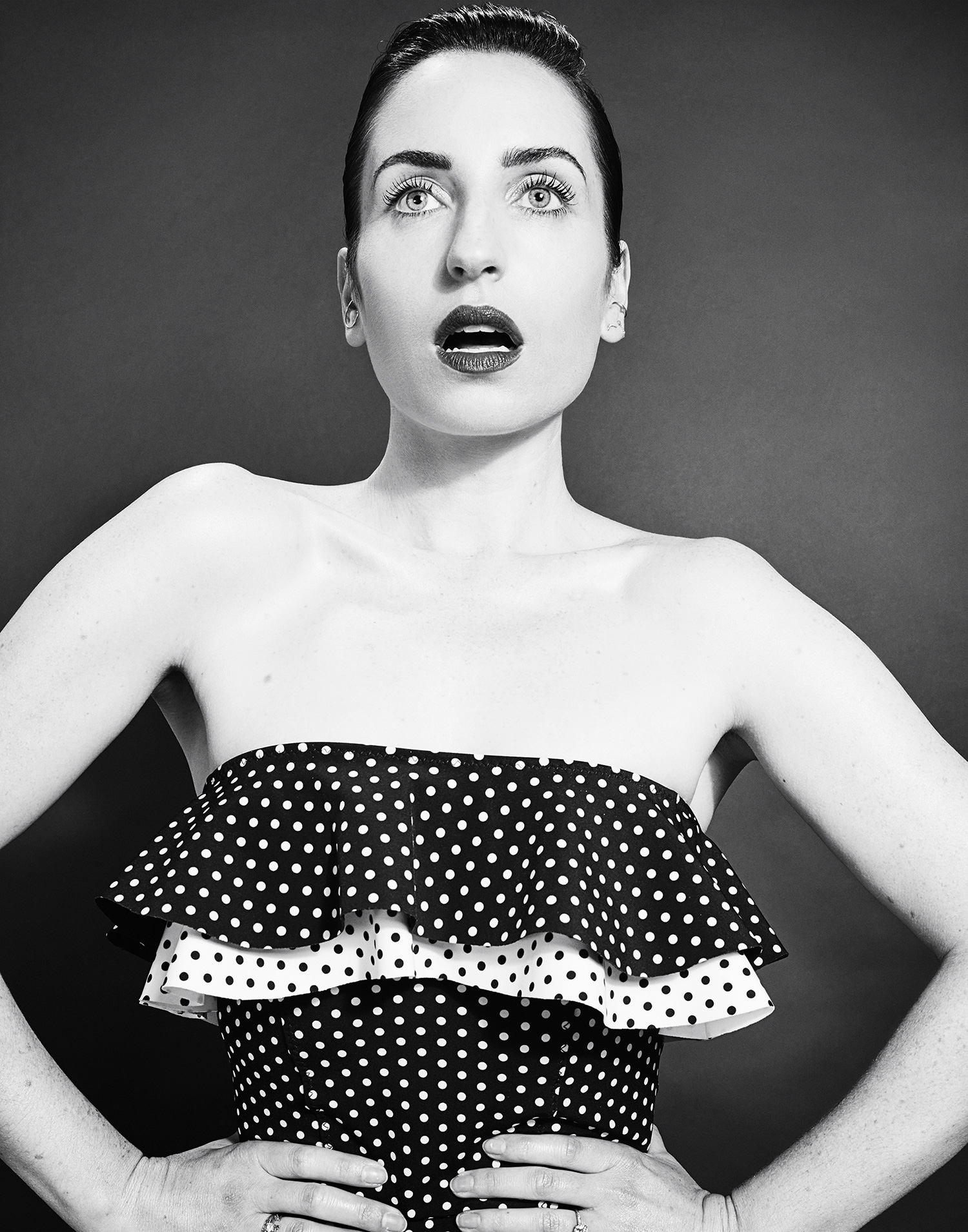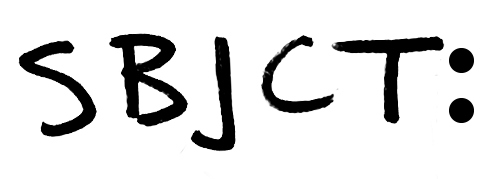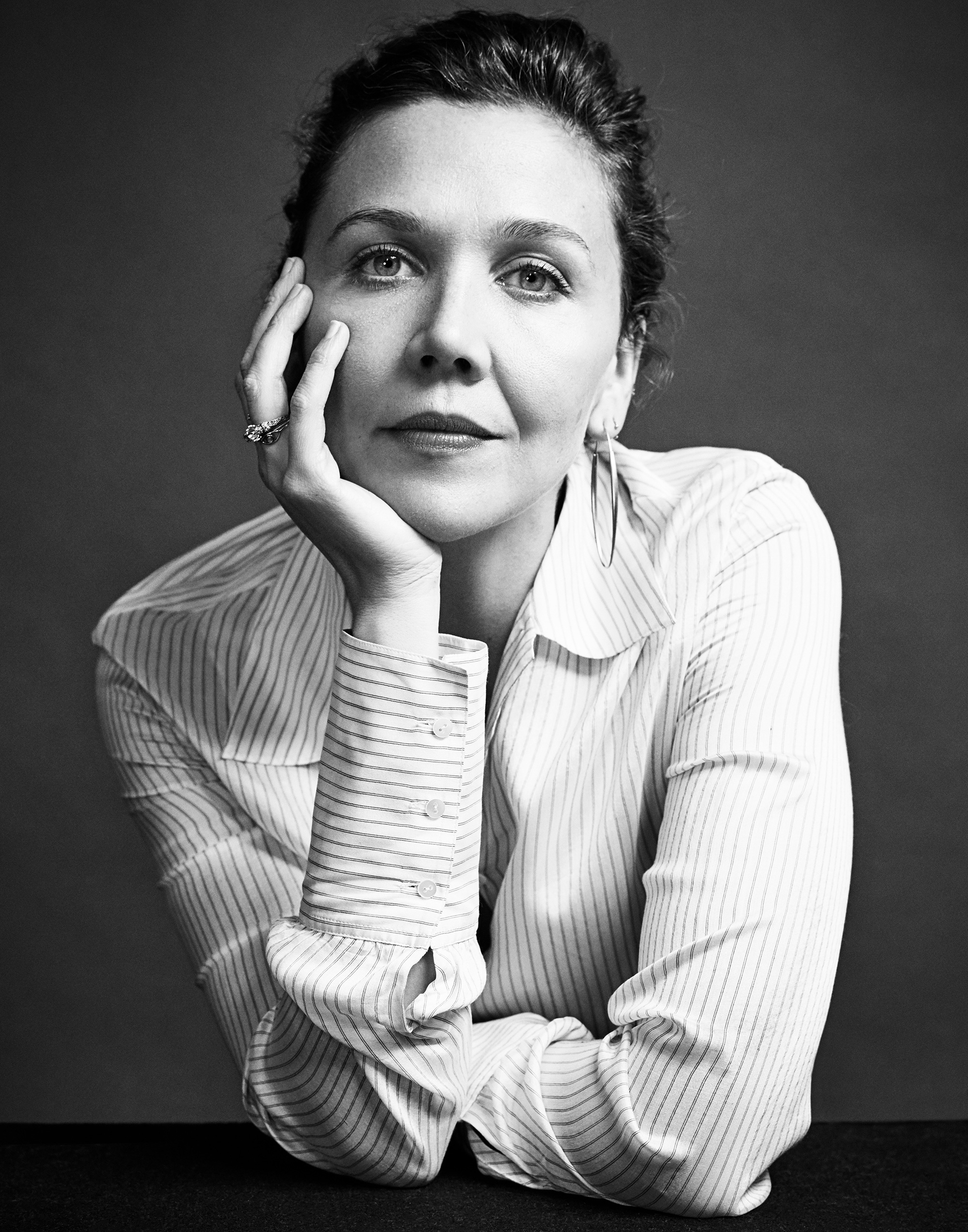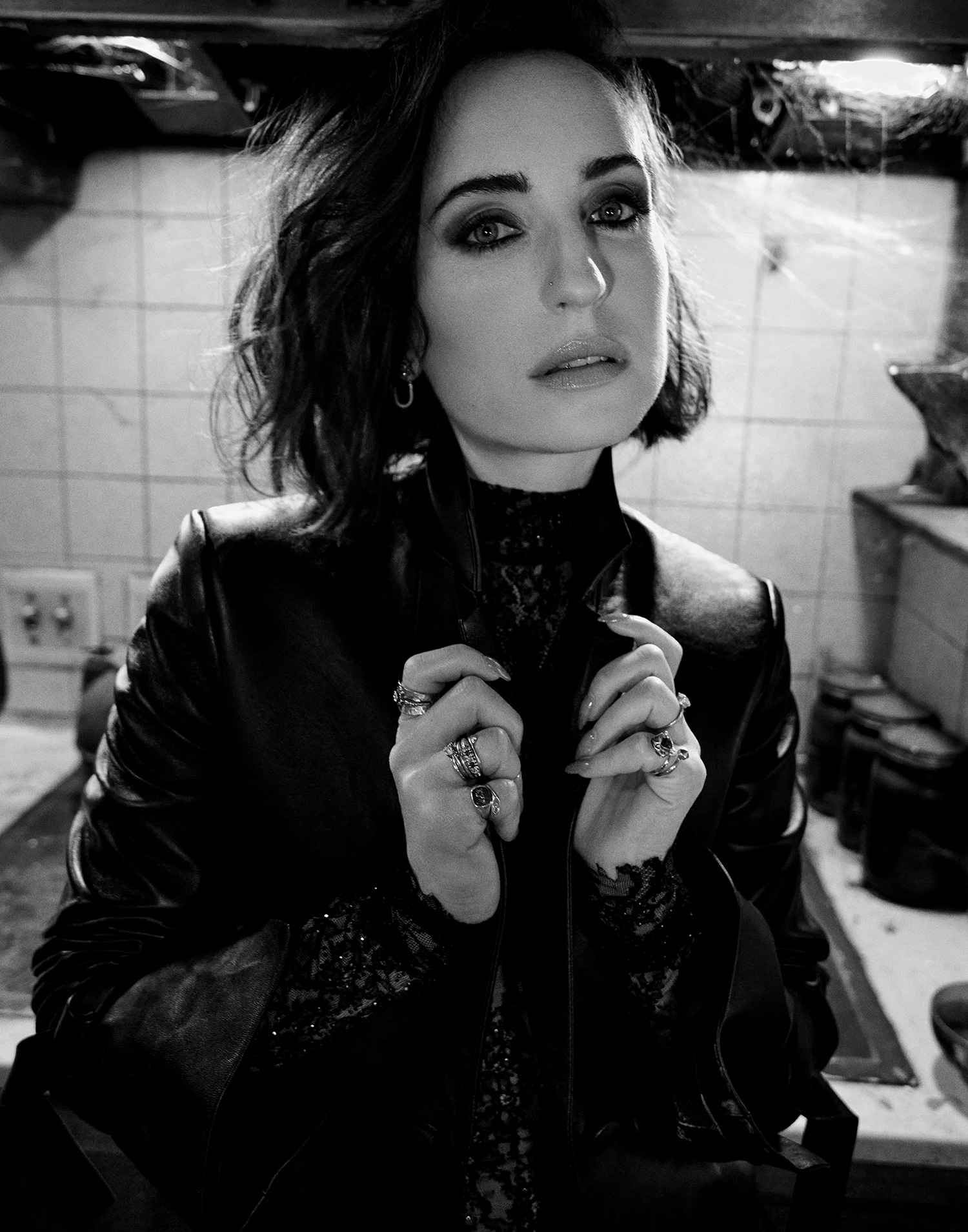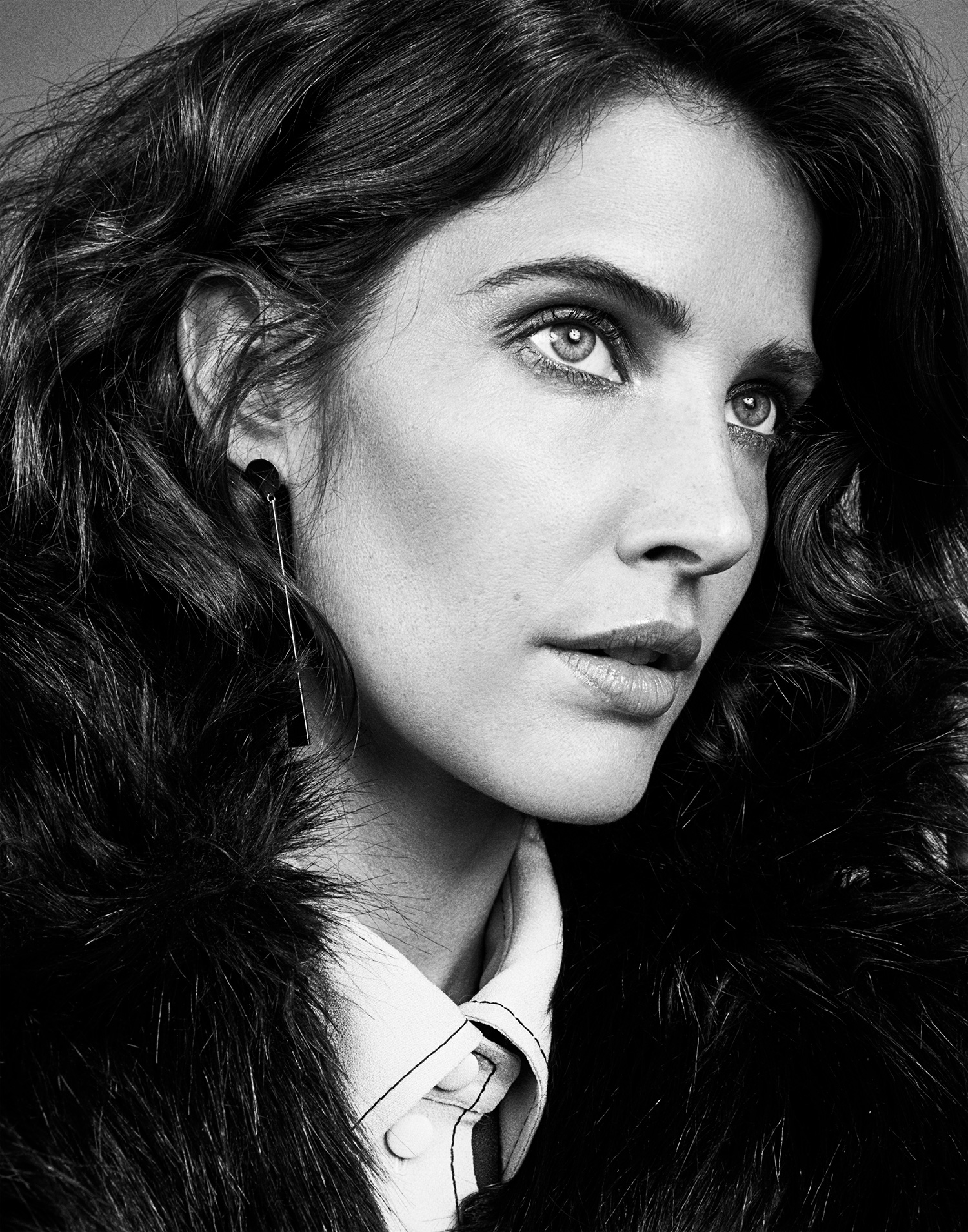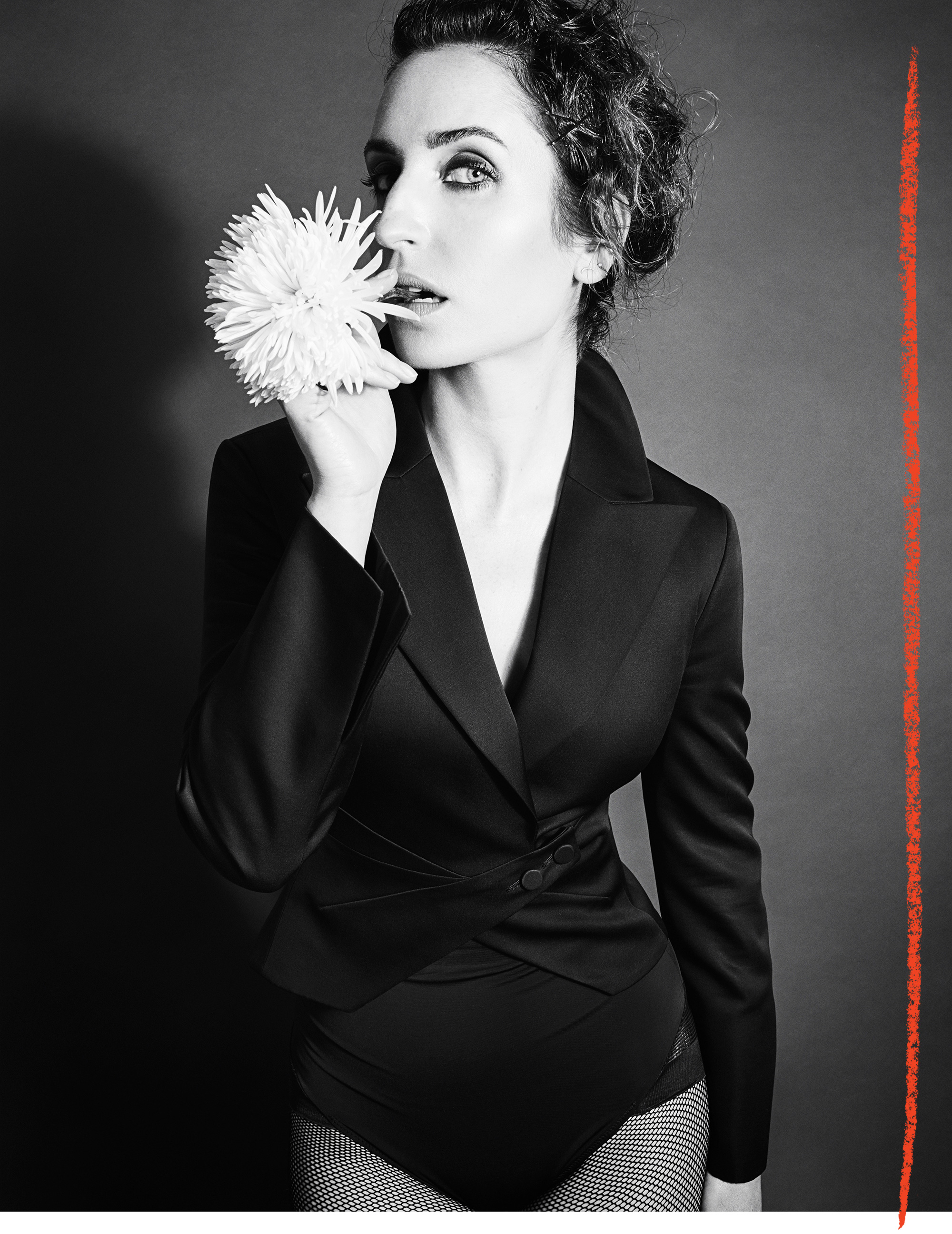
Blazer Christian Dior Knickers Triumph Stockings Wolford Jewelry Personal
Zoe Lister-Jones on her new film Band Aid, gender disparities in Hollywood, and why her characters are freakishly relatable.
BY PHOEBE DE CROISSET
Zoe Lister-Jones is the product of two artists; her mother, a video artist and a “feminist of the highest order,” and her father, a conceptual photographer. Throughout her career as a writer, producer, and actor, Zoe has remained acutely aware of the gender disparities in Hollywood. So it makes sense that for her directorial debut, she chose to hire an all-female production crew. Band Aid tells the story of a 30-something married couple who experience a loss and struggle to recover. Their frustration turns into anger, which takes the form of endless squabbles and arguments. The solution? They start a band to sing through their woes. What ensues is a searingly honest, sometimes hilarious account of the challenges and joys of committing to another person – for life.
Phoebe de Croisset Congratulations on your directorial debut! Tell us about Band Aid and how it came to be.
Zoe Lister-Jones Thank you! Well, I think I had come up against some roadblocks creatively – writing had started to feel a bit like a chore. I was looking for a story that I could have a little more fun writing, and I wanted to create a narrative that would help me do that, specifically by finding a story that could have music at its center. I have always been interested in exploring modern relationships, specifically long-term commitment and what it means to really commit to a person – and what it takes to commit to a person in today’s world. As so Band Aid was born.
PC Can you talk about your decision to hire an all-female production crew? Where did that stem from, and why was it so important to you?
ZLJ Let me start by saying that my mom raised me to view the world through a very specific lens, which was focused on injustice in general, and specifically gender inequities. I think this awareness is something that has lived within me as I have become a woman and an artist in my own right. I had become very aware of the underrepresentation of women on film and television crews, but also just from an artistic stand-point, I was really interested in what it would feel like to make a movie with all women. And as my first foray as a director, I thought that would be a really exciting artistic opportunity.
PC How did you find the experience? Was there a palpable difference on set?
ZLJ Yes! It was energetically very distinct to me, and I think to everyone on set. And this is not in any way an indictment or criticism of men on set – I have amazing working relationships with men – but it was this super supportive and calm and patient and communicative community that felt very free of ego. It was really collaborative in a way that enhanced the work. And then on top of that, I think it was super efficient.
PC In keeping to your commitment, I expect you ended up hiring women who were, in some cases, perhaps less experienced than their male counterparts. Did you acknowledge that as a risk, and were you ever worried about it?
ZLJ I think it was challenging at times, especially for the people who were used to working with collaborators, and who were used to that shared work history. A lot of new relationships had to be forged, and people had to get out of their comfort zones. But once we got on set that first day, everyone was so excited by what we were doing that it fueled the work with a really amazing energy. And what was really nice about the experience was that in a few cases, there was that element of mentorship. I think that women can be really incredible mentors. And people who are not usually given opportunities will likely work that much harder. So it fostered some great relationships.
PC Why do you think the industry is still falling so short when it comes to giving women equal representation behind the camera? How is that changing, if at all? And what’s the key to effect change?
ZLJ I think it’s about staying vigilant in terms of holding all of ourselves accountable – and that includes women. If you start to think that we’re beyond sexism or racism, that’s when it gets really dangerous. There are so many double standards that are really detrimental. It’s really hard to break patterns and habits that have stood the test of time, but all of us need to continue to really push ourselves outside of our comfort zones, and sometimes that means taking a “risk” on somebody who might have less experience!
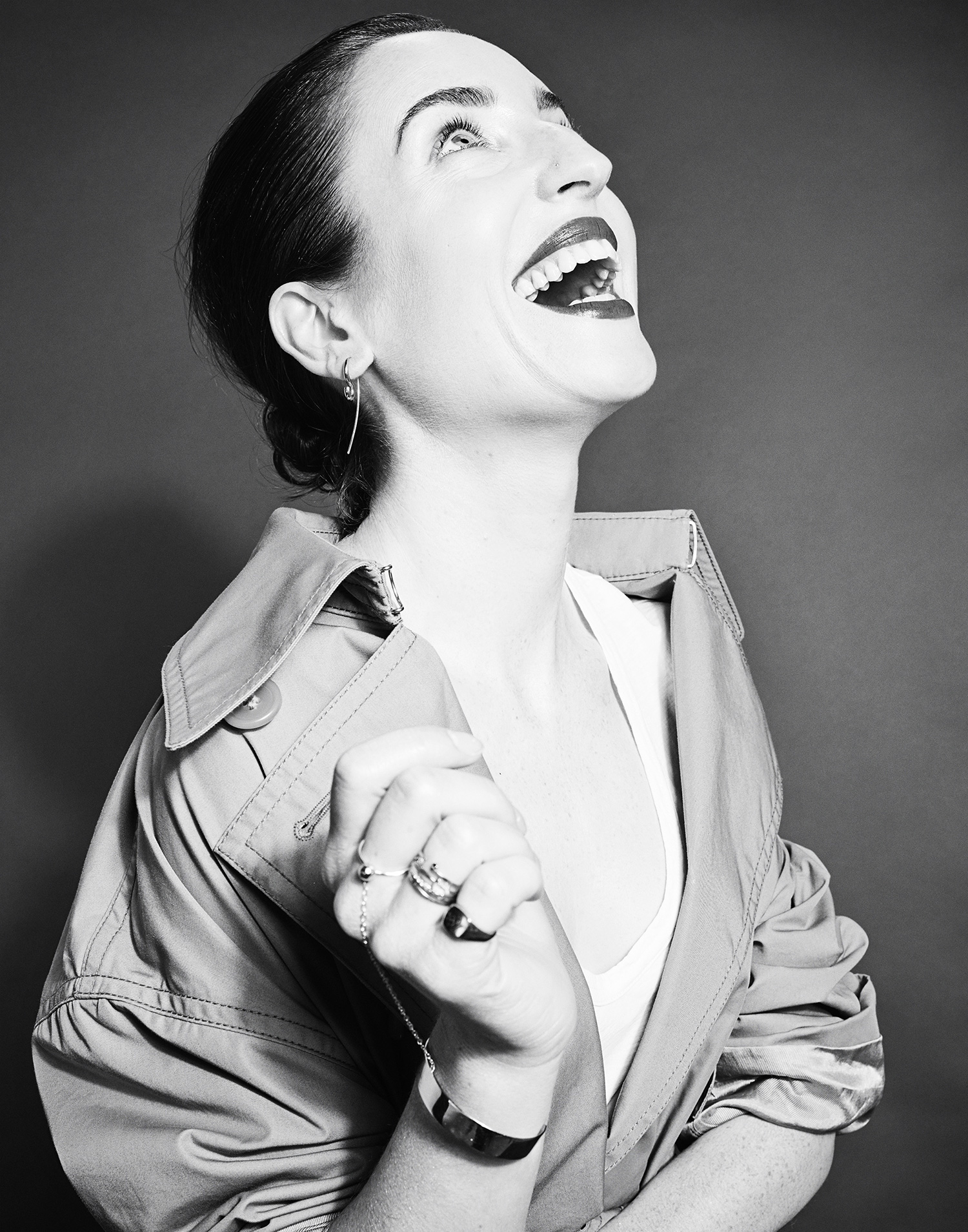
Trench Jacqemus T-Shirt Nili Lotan Jewelry Personal
PC Let’s talk about the relationship of the couple in the film. Your characters are so relatable – sometimes uncomfortably so! Did you draw upon personal experience when writing their roles?
ZLJ As a writer, I always draw upon personal experiences, but I also draw upon experiences from friends and people I know. I think it’s always a mixed bag, and whether or not something comes directly from my own life or if it’s something I’ve pulled from my imagination, I always strive to write characters that feel as authentic as possible. As human and as underwritten as possible.
PC That’s probably why all of us, no matter what our relationship situation, can relate to them so closely.
ZLJ I always feel really gratified when an audience member tells me they see themselves in the couple, or that they can relate to the people on screen, because I think that’s ultimately that’s the biggest job as a filmmaker – to portray humanity in a way that feels universal and universally relatable. I think when it comes to things as personal as domestic squabbles or fights, or the conflicts that come up in long-term relationships, those things can feel shameful to a person or very specific to their own dynamic. And I think that there is a certain amount of relief to know how common those kinds of things are in every relationship.
I always strive to write characters that feel as authentic as possible. As human and as underwritten as possible.
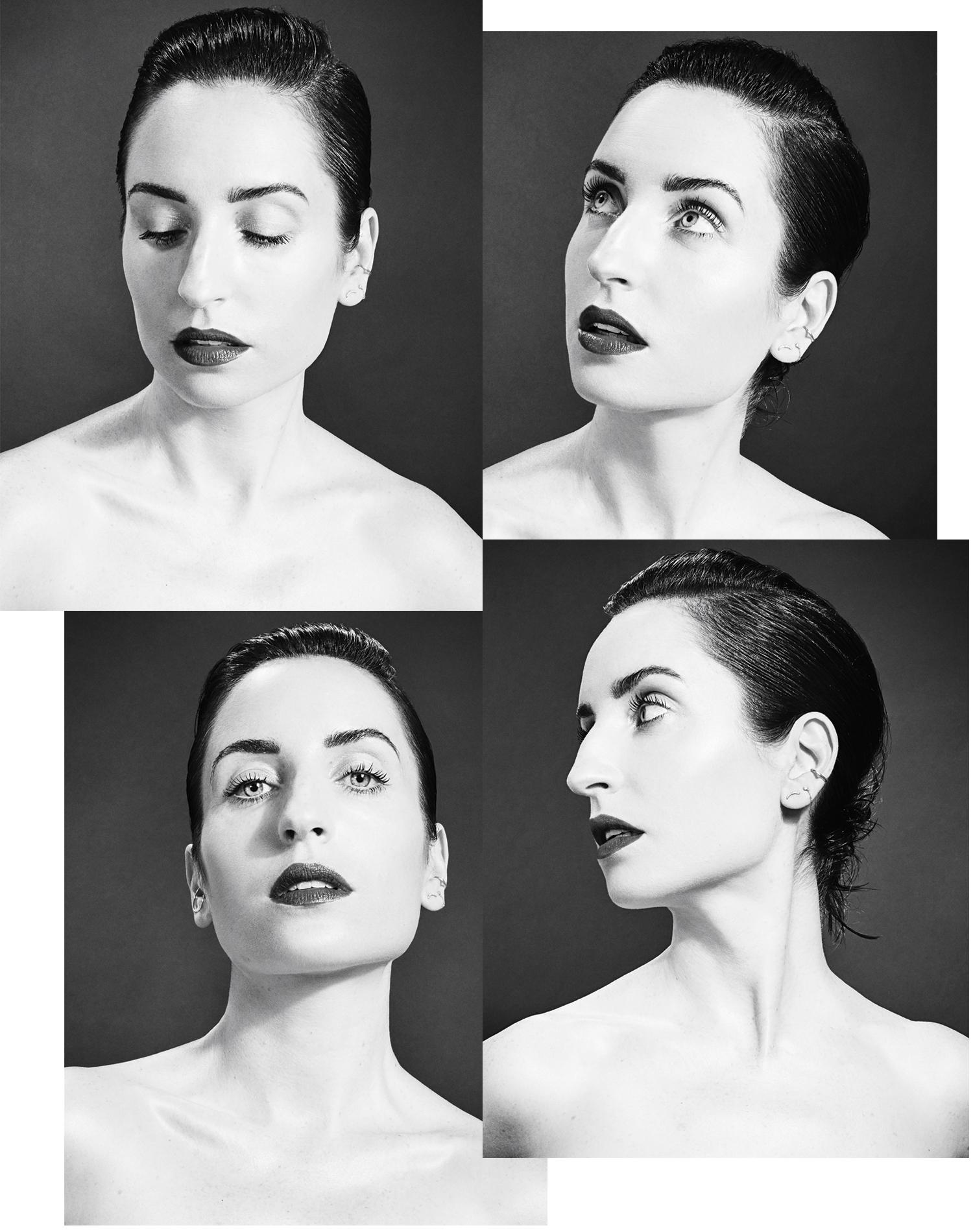
PC What was the biggest lesson you learned from your first experience as a director?
ZLJ Learning what a communal process it is! When you think about a director, you think about this singular vision; one person with the control of shaping that vision alone. I think it’s so much more meaningful when that vision is shaped by all the people around you in order to enhance the vision that you set out to create.
PC What’s your most important job as a director?
ZLJ There are too many jobs to choose just one! I would say it’s to shape the performance, guide the creative vision, and really make sure everyone around you feels valued for the work that they are doing. And to make sure that everyone feels a certain amount of creative autonomy – because that’s where the best work is done.
PC You’ve talked about your mother and as “feminist of the highest order.” How much of an influence did she have on your growing up, and still today?
ZLJ She taught me that I was allowed to take up space. That no limitations had been placed on me. I think as a woman, that is such a valuable lesson. I am generally a pretty fearful person, yet I set out to do something as grand as writing and directing and starring and producing – that takes a certain amount of fearlessness. I attribute some of that sense of fearlessness to the way my mom raised me.
PC What do you look forward to as your career continues to evolve?
ZLJ I would love to keep writing and directing and just working with people who inspire me – whether as a writer or director or actor or all three. To continue to challenge myself to get out of my comfort zone as an artist.
